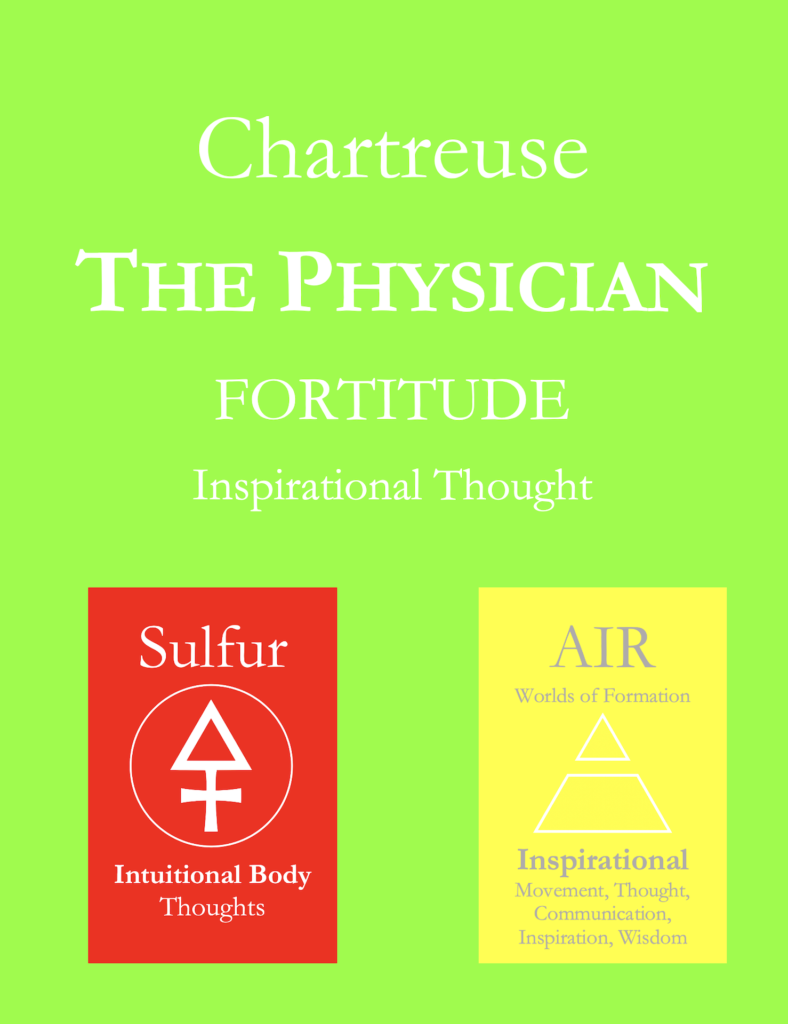Chartreuse
The Physician
Physicians, medical professionals dedicated to the diagnosis, treatment, and prevention of illness and disease, possess a unique combination of attributes and qualities that enable them to provide high-quality healthcare and support to their patients. Here are the key attributes of a physician:
- Medical Knowledge and Expertise: Physicians possess comprehensive medical knowledge and expertise in anatomy, physiology, pathology, pharmacology, and other specialized fields of medicine. They stay abreast of the latest research, technologies, and treatment modalities to deliver evidence-based care to their patients.
- Diagnostic Skills: Physicians demonstrate strong diagnostic skills, able to accurately assess patient symptoms, interpret diagnostic tests, and formulate differential diagnoses. They employ critical thinking and clinical reasoning to identify underlying health issues and develop appropriate treatment plans.
- Compassion and Empathy: Physicians exhibit compassion and empathy towards their patients, recognizing their unique needs, concerns, and vulnerabilities. They listen attentively, show genuine concern, and provide emotional support to patients and their families throughout the healthcare journey.
- Communication Skills: Physicians communicate effectively with patients, colleagues, and other healthcare professionals, conveying complex medical information in a clear, understandable manner. They foster open dialogue, encourage patient engagement, and promote shared decision-making to enhance patient understanding and compliance.
- Ethical Conduct and Professionalism: Physicians uphold ethical principles and professional standards in their practice, adhering to codes of conduct and guidelines established by medical organizations and regulatory bodies. They prioritize patient welfare, respect confidentiality, and maintain integrity and trustworthiness in all their interactions.
- Clinical Judgment and Decision-making: Physicians exercise sound clinical judgment and decision-making, weighing risks and benefits, considering patient preferences and values, and making informed choices about treatment options and interventions. They remain objective, evidence-based, and patient-centered in their decision-making process.
- Teamwork and Collaboration: Physicians collaborate effectively with interdisciplinary teams of healthcare professionals, including nurses, specialists, therapists, and support staff, to coordinate patient care and optimize outcomes. They value teamwork, respect diverse perspectives, and foster a culture of collaboration and mutual respect within the healthcare team.
- Continuing Education and Lifelong Learning: Physicians embrace lifelong learning and continuing education, staying current with advancements in medical science, technology, and practice. They pursue professional development opportunities, attend conferences, and engage in self-directed study to enhance their clinical skills and knowledge.
- Cultural Competence and Diversity: Physicians demonstrate cultural competence and sensitivity to the diverse backgrounds, beliefs, and values of their patients. They recognize the influence of cultural factors on health and healthcare decisions, adapt their approach accordingly, and strive to provide culturally responsive care that respects individual preferences and needs.
- Resilience and Self-care: Physicians prioritize their own well-being and resilience, recognizing the demanding nature of their profession and the importance of self-care. They maintain a healthy work-life balance, seek support from colleagues and mentors, and engage in activities that promote physical, emotional, and psychological wellness.
By embodying these attributes, physicians fulfill their professional responsibilities, provide compassionate and patient-centered care, and contribute to the health and well-being of individuals and communities they serve.





